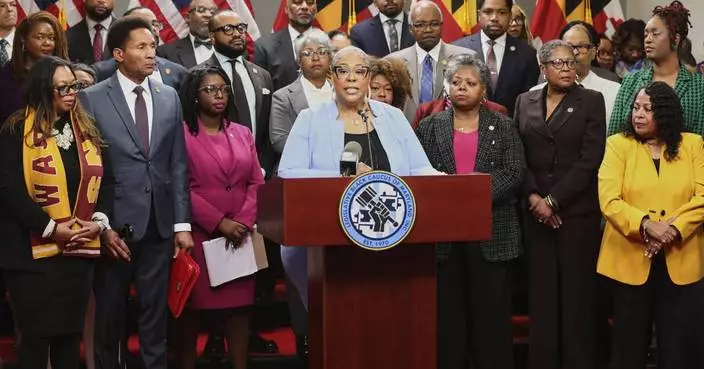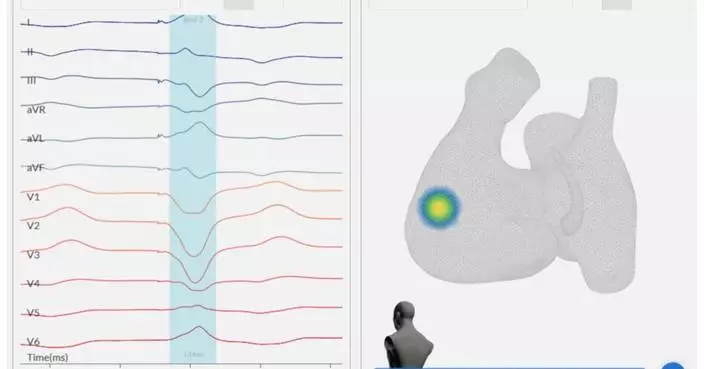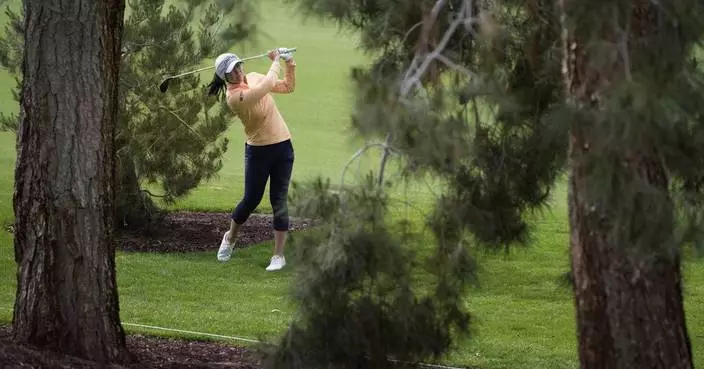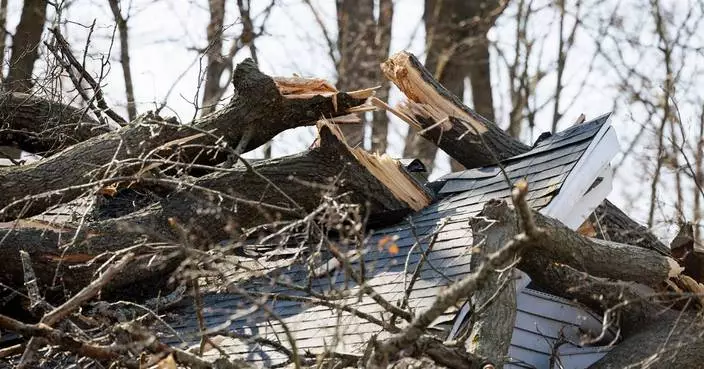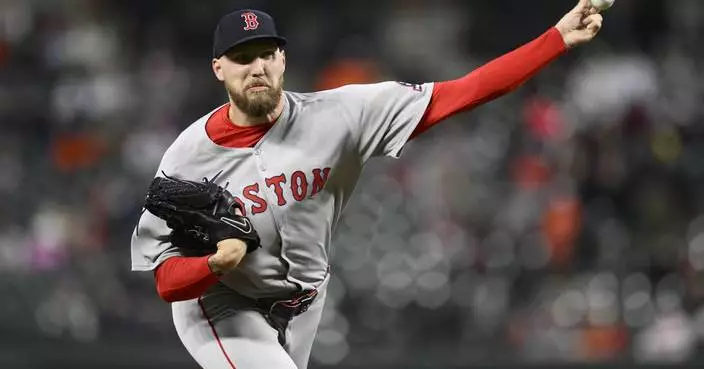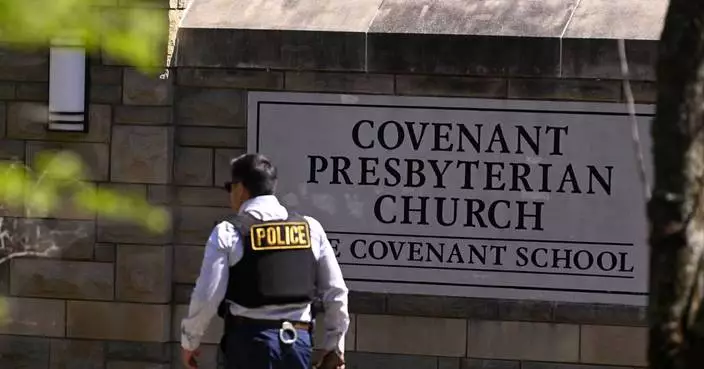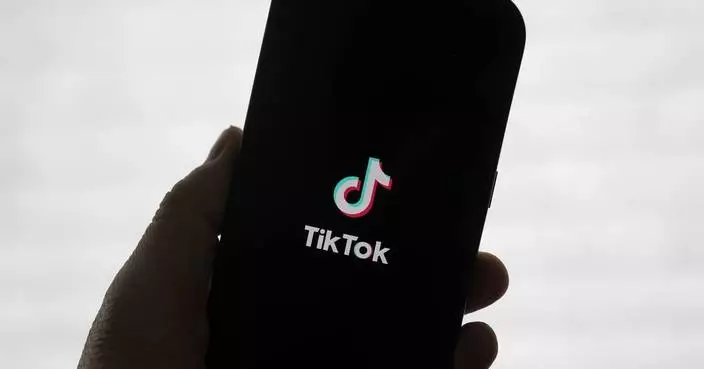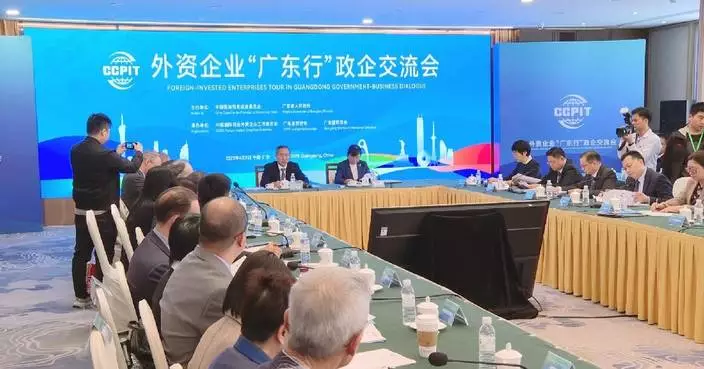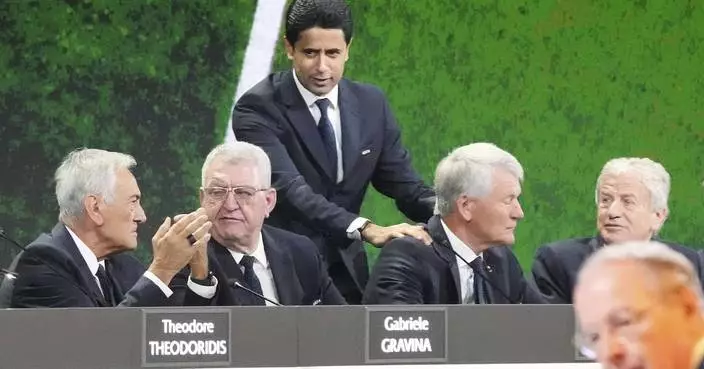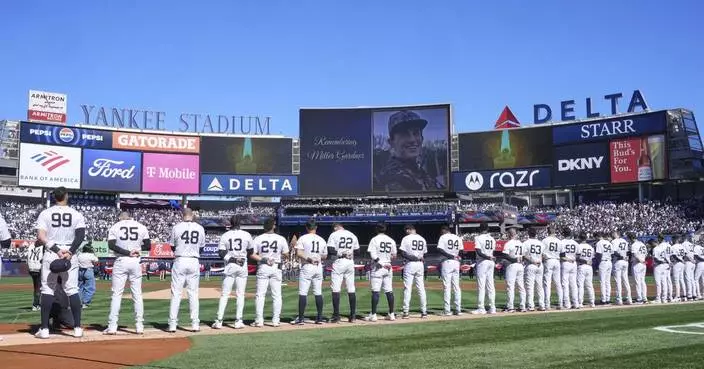TOKYO--(BUSINESS WIRE)--Mar 31, 2025--
Urethral stricture affecting men of all ages, with increasing incidence after 55, is a recurring problem despite several treatment options. By transplanting autologous lab-engineered buccal tissue cells ( BEES-HAUS ), Dr Akio Horiguchi successfully accomplished the first clinical transplantation in Edogawa Hospital, Japan as per Japanese Regenerative Medicine law, and presented in International Meeting Of Reconstructive Urology (IMORU) in Hamburg, Germany. Safety and efficacy clinically, reported earlier by Dr Suryaprakash from India, triggered this tech-transfer feat, spearheaded by GN Corporation.
This press release features multimedia. View the full release here: https://www.businesswire.com/news/home/20250330565540/en/
Urethral lumen is a delicate tissue, when damaged, inflammation and fibrosis lead to stricture. While idiopathic causes comprise the majority, radiation therapy for prostate cancer, trauma and infection are other causes. At early stages, endoscopic dilatation or urethrotomy are undertaken, but disease recurrence is common, causing difficulty in voiding urine, sexual dysfunction and infertility. Repeated interventions make the diseased segment longer and at some point, require a buccal tissue urethroplasty, where a large tissue from the mouth is harvested and used as a graft, causing oral morbidity. In BEES-HAUS procedure, cells from a small buccal tissue, cultured in the lab are transplanted, that cover and replace the damaged urethral epithelium, proven clinically and pre-clinically, healing the urethra and preventing recurrence. BEES-HAUS technology uses a hybrid combination of 2D cultured fibroblast like cells secreting IGF-1, yielding paracrine healing effect and 3D thermo-reversible gelation polymer cultured cells that engraft and restore the epithelial integrity, considered as the first of its kind feat in regenerative medicine. BEES-HAUS therapy could be recommended at earlier stages of the disease as well, after validations, opined Dr. Horiguchi.
The Indo-Japan team has standardized the tissue engineering procedure, engraftment of cells on epithelial surface, transport of buccal tissue from hospital to lab and harvested cells back to hospital using a nano-polymer cell and tissue transportation cocktail, making the entire procedure highly efficient, end to end.
Based on inter-disciplinary research by GN Corporation since 2008 with NCRM, Chennai, Tamilnadu, India, after having yielded a clinical solution and successful tech-transfer to Edogawa Hospital, Japan, GN Corporation has now signed a MoU with Soulsynergy, Mauritius. This partnership will propagate cell-based therapies for urethral stricture, corneal regeneration and AIET for cancer, making Mauritius, a healthcare technology cum medical tourism hub for African continent and Indian ocean rim countries.
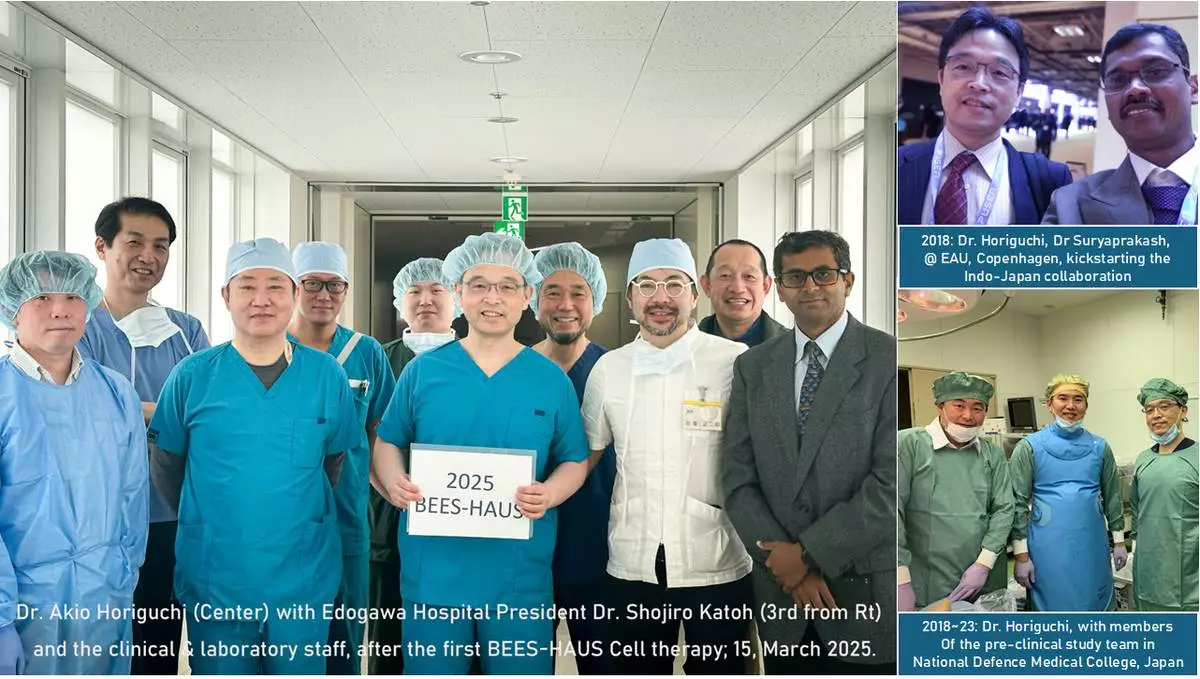

In 2008, GN Corp initiated research with NCRM, Chennai, Tamil Nadu, India on restoring corneal blindness using buccal tissue epithelial cells. An out of the box idea of Dr. Suryaprakash, Urologist from Hyderabad, India in 2012 to apply buccal (oral) mucosal cells to repair stricture-inflicted male urethra, led to a clinical study, which he presented in NCRM NICHE 2017 in Tokyo, kickstarting a collaboration with Dr. Akio Horiguchi, National Defence Medical College, Japan, as they met in EAU in 2018 (Top right picture). Upon confirming successful cell engraftment in urethral stricture pre-clinical models taking help from the Dept. of Medical Engineering of NDMC between 2018~2023, (Bottom, right picture), now in 2025, clinical application has been initiated in Edogawa Hospital, Tokyo. Main picture: BEES-HAUS team after the first clinical transplant in Edogawa Hospital, Tokyo; Dr.Horiguchi (Centre) with Dr.Shojiro Katoh (President, Edogawa Hospital) standing left to him.
BANGKOK (AP) — The sweeping new tariffs announced Wednesday by U.S. President Donald Trump were met initially with measured reactions from key trading partners, highlighting the lack of appetite for a full-fledged trade war.
Trump presented the import taxes, which he calls “reciprocal tariffs” and range from 10% to 49%, in the simplest terms: the U.S. would do to its trading partners what he said they had been doing to the U.S. for decades.
“Taxpayers have been ripped off for more than 50 years,” he said. “But it is not going to happen anymore.”
The president promised that “Jobs and factories will come roaring back into our country.” He framed it not just as an economic issue, but a question of national security that threatens “our very way of life.”
Financial markets were jolted, with U.S. stock futures down by as much as 3% early Thursday and Tokyo’s market leading losses in Asia. Oil prices sank more than $2 a barrel and the price of bitcoin dropped 4.4%.
Shortly after Trump's announcement, the British government said the United States remains the U.K.’s “closest ally.”
Business Secretary Jonathan Reynolds said the U.K. hoped to strike a trade deal to “mitigate the impact” of the 10% tariffs on British goods announced by Trump.
“Nobody wants a trade war and our intention remains to secure a deal," said Reynolds. "But nothing is off the table and the government will do everything necessary to defend the U.K.’s national interest.”
Italy’s conservative Premier Giorgia Meloni described the new 20% tariffs against the European Union as “wrong,” saying they benefit neither side.
“We will do everything we can to work towards an agreement with the United States, with the aim of avoiding a trade war that would inevitably weaken the West in favor of other global players,” Meloni said in a Facebook post.
Brazil's government said it was considering taking the case to the World Trade Organization. And later, in a rare display of unity, Brazil’s Congress unanimously passed a reciprocity bill to allow its government to retaliate against any country or trade bloc that imposes tariffs on Brazilian goods.
Some countries took issue with the White House's calculations.
Australian Prime Minister Anthony Albanese said the U.S. tariffs imposed on his country were totally unwarranted, but Australia will not retaliate.
“President Trump referred to reciprocal tariffs. A reciprocal tariff would be zero, not 10%,” said Albanese. The U.S. and Australia have a free trade agreement and the U.S. has a $2-to-$1 trade surplus with Australia. “This is not the act of a friend.”
Trump said the United States bought $3 billion of Australian beef last year, but Australia would not accept U.S. beef imports. Albanese said the ban on raw U.S. beef was for biosecurity reasons.
The 29% tariff imposed on the tiny South Pacific outpost of Norfolk Island came as a shock. The Australian territory has a population of around 2,000 people and the economy revolves around tourism.
“To my knowledge, we do not export anything to the United States,” Norfolk Island Administrator George Plant, the Australian government’s representative on the island, told the AP Thursday. “We don’t charge tariffs on anything. I can’t think of any non-tariff barriers that would be in place either, so we’re scratching our heads here.”
New Zealand also took issue with Trump’s tariff logic.
“We don’t have a 20% tariff rate,” said trade minister Todd McClay, adding that New Zealand was “a very low tariff regime” and the correct figure was below the 10% baseline rate applied by the U.S. to all countries.
“We won’t be looking to retaliate. That would put up prices on New Zealand consumers and it would be inflationary,” he said.
Spared for the moment from the latest round of tariffs were Mexico and Canada, so far as goods that already qualified under their free trade agreement with the United States. Yet, the previously announced 25% tariffs on auto imports were scheduled to take effect at midnight.
Mexico President Claudia Sheinbaum said Wednesday she would wait to take action on Thursday when it was clear how Trump’s announcement would affect Mexico.
“It’s not a question of if you impose tariffs on me, I’m going to impose tariffs on you,” she said Wednesday morning. “Our interest is in strengthening the Mexican economy.”
Canada had imposed retaliatory tariffs in response to the 25% tariffs that Trump tied to the trafficking of fentanyl. The European Union, in response to the steel and aluminum tariffs, imposed taxes on 26 billion euros’ worth ($28 billion) of U.S. goods, including bourbon, prompting Trump to threaten a 200% tariff on European alcohol.
As Trump read the list of countries that would be targeted Wednesday, he repeatedly said he didn’t blame them for the trade barriers they imposed to protect their own nations’ businesses. “But we’re doing the same thing right now,” he said.
“In the face of unrelenting economic warfare, the United States can no longer continue with a policy of unilateral economic surrender,” Trump said.
Speaking from a business forum in India, Chilean President Gabriel Boric warned that such measures, in addition to causing uncertainty, challenge the “mutually agreed rules” and the “principles that govern international trade.”
Colombia President Gustavo Petro, who has clashed with Trump before, said via X that the tariffs marked a global milestone: “Today the neoliberalism that proclaimed free-trade policies all over the world has died.”
Analysts say there’s little to be gained from an all-out trade war, neither in the United States or in other countries.
“Once again, Trump has put Europe at a crossroads,” said Matteo Villa, senior analyst at Italy’s Institute for International Political Studies.
“If Trump really imposes high tariffs, Europe will have to respond, but the paradox is that the EU would be better off doing nothing,” he added.
Villa also noted that retaliation would certainly be a further “blow” to the United States, but it would hurt Europe even more, as the EU bloc depends more on exports to the U.S. than vice versa.
“On the other hand, Trump seems to understand only the language of force, and this indicates the need for a strong and immediate response,” Villa said. “Probably the hope, in Brussels, is that the response will be strong enough to induce Trump to negotiate and, soon, to backtrack.”
__
AP journalists around the world contributed to this story.
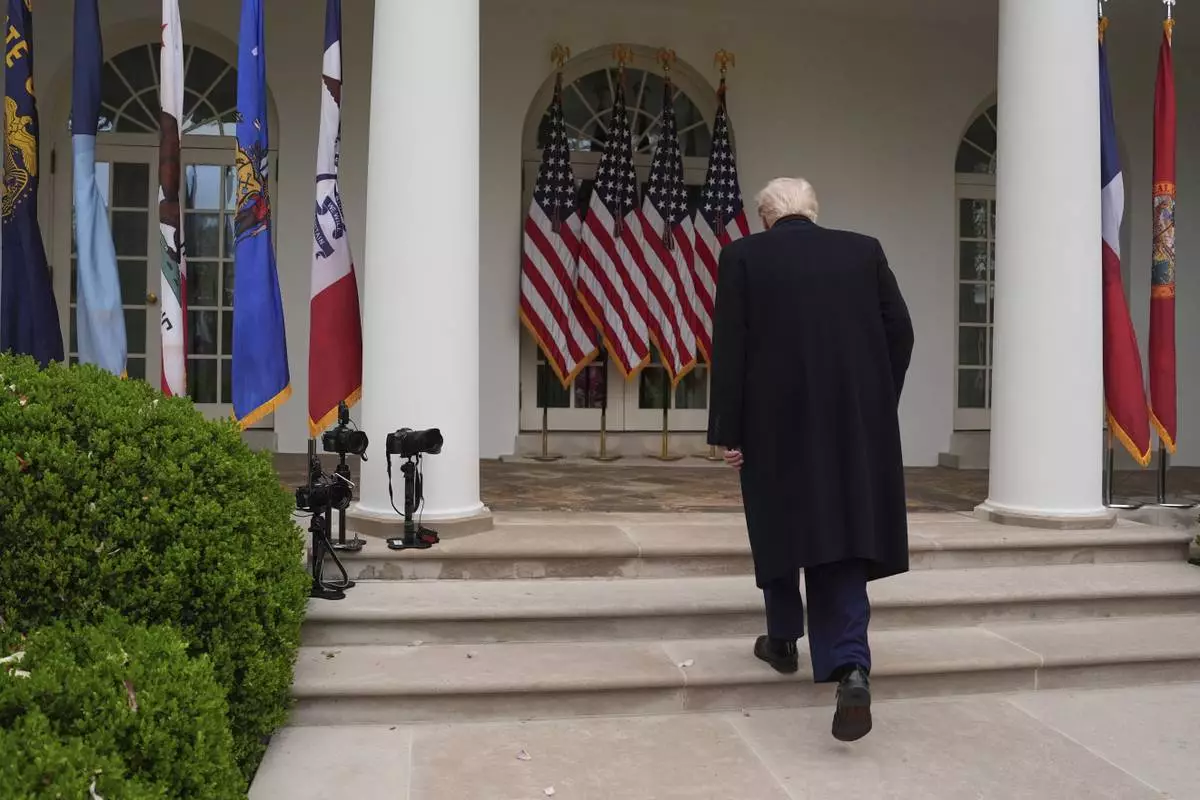
President Donald Trump departs after signing an executive order at an event to announce new tariffs in the Rose Garden of the White House, Wednesday, April 2, 2025, in Washington. (AP Photo/Evan Vucci)
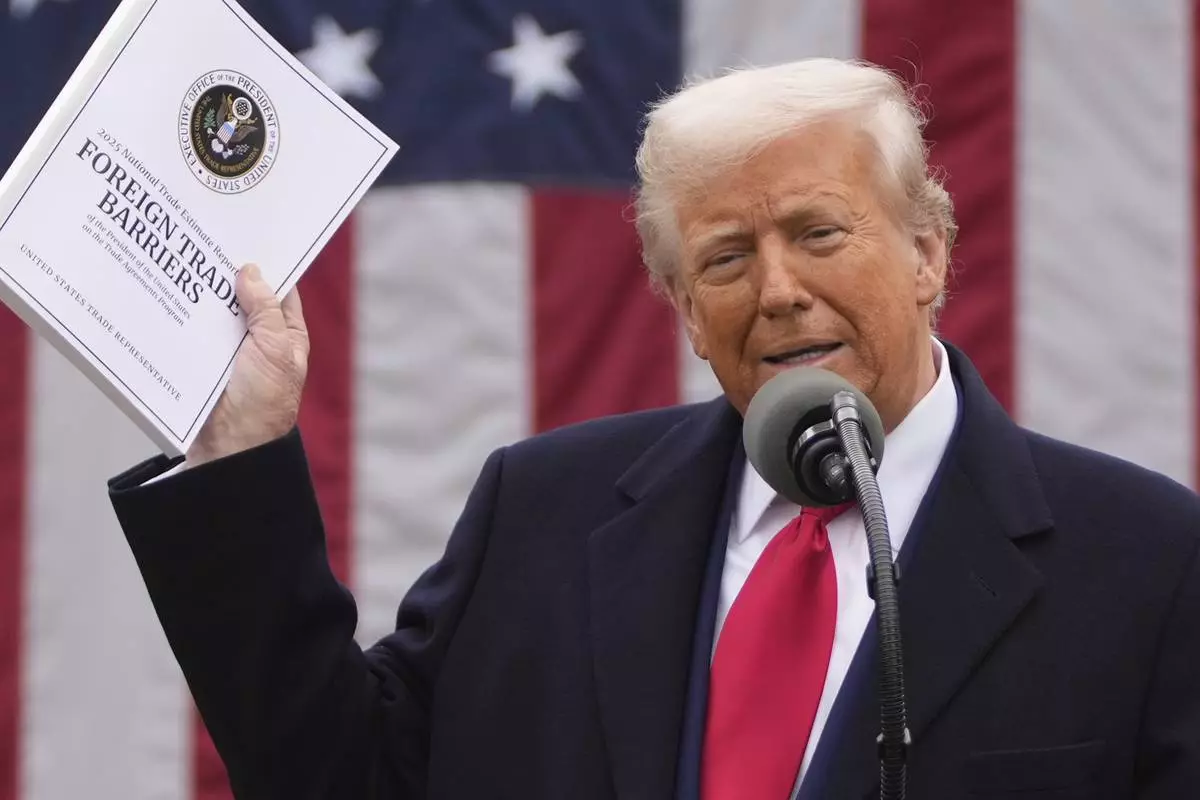
President Donald Trump speaks during an event to announce new tariffs in the Rose Garden at the White House, Wednesday, April 2, 2025, in Washington. (AP Photo/Mark Schiefelbein)
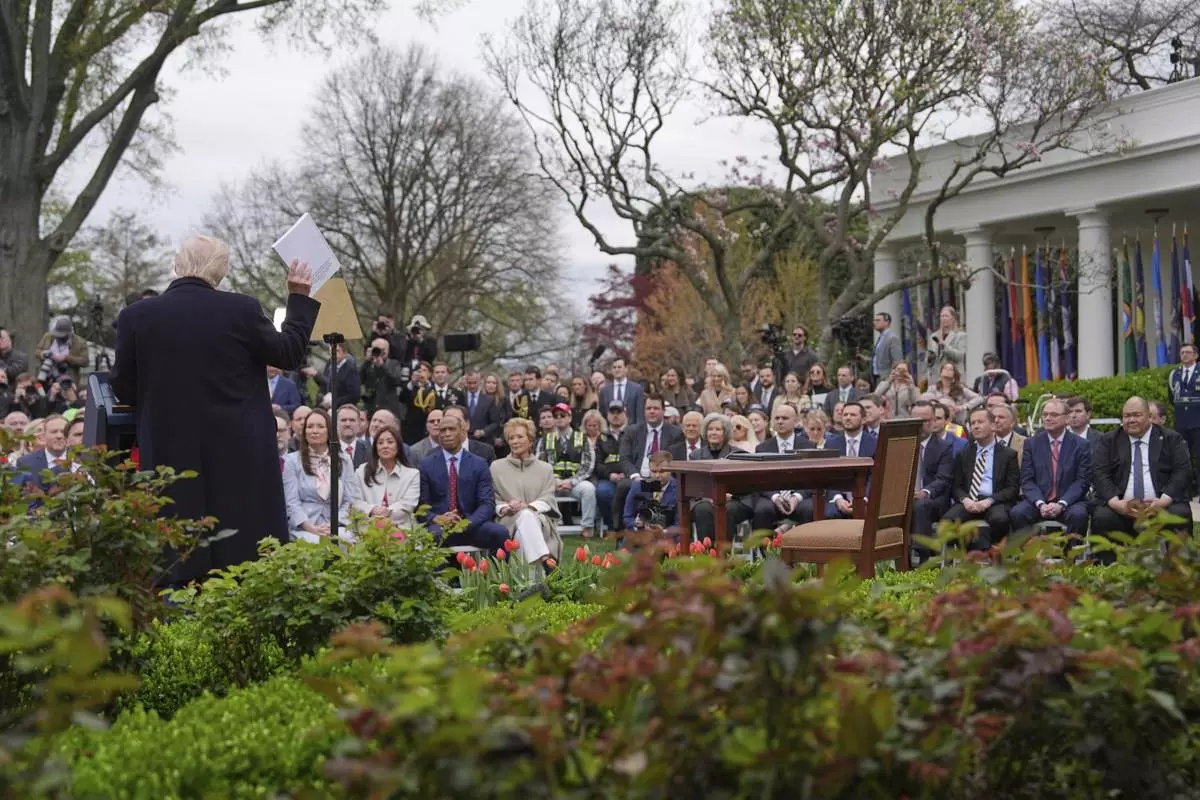
President Donald Trump speaks during an event to announce new tariffs in the Rose Garden of the White House, Wednesday, April 2, 2025, in Washington. (AP Photo/Evan Vucci)
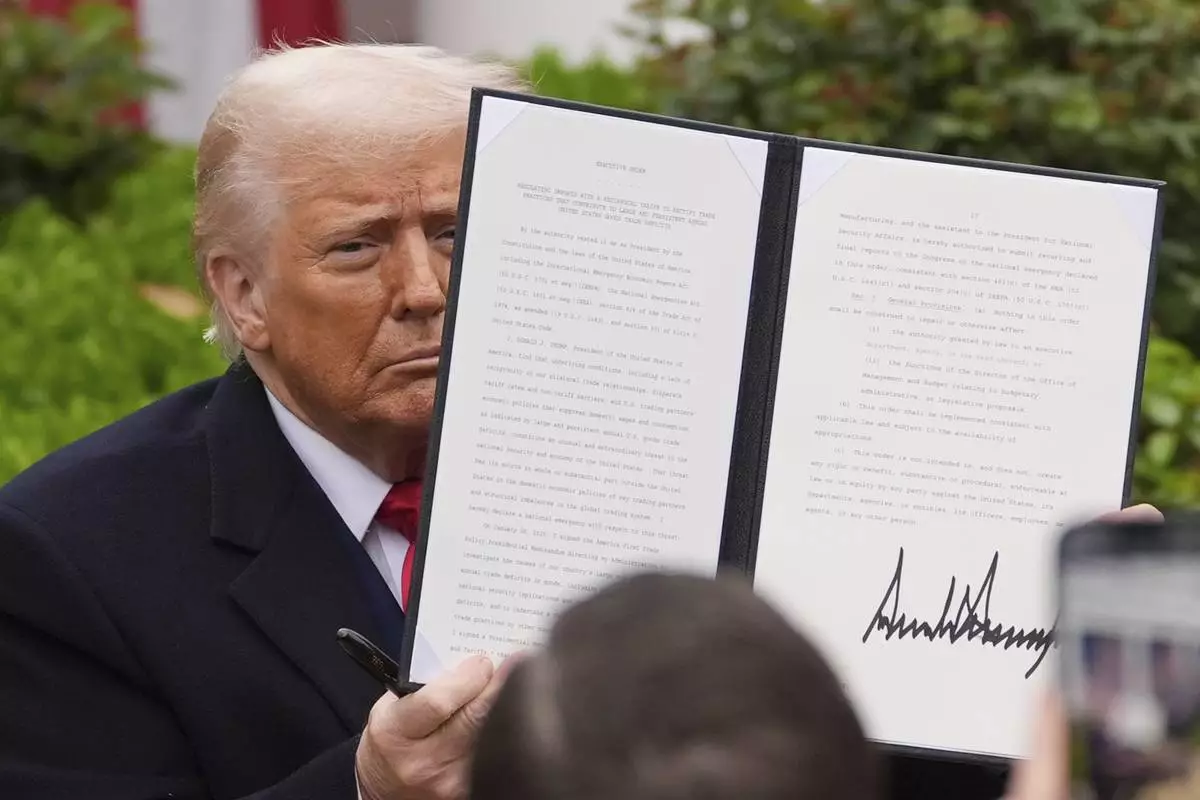
President Donald Trump holds a signed executive order during an event to announce new tariffs in the Rose Garden of the White House, Wednesday, April 2, 2025, in Washington. (AP Photo/Evan Vucci)
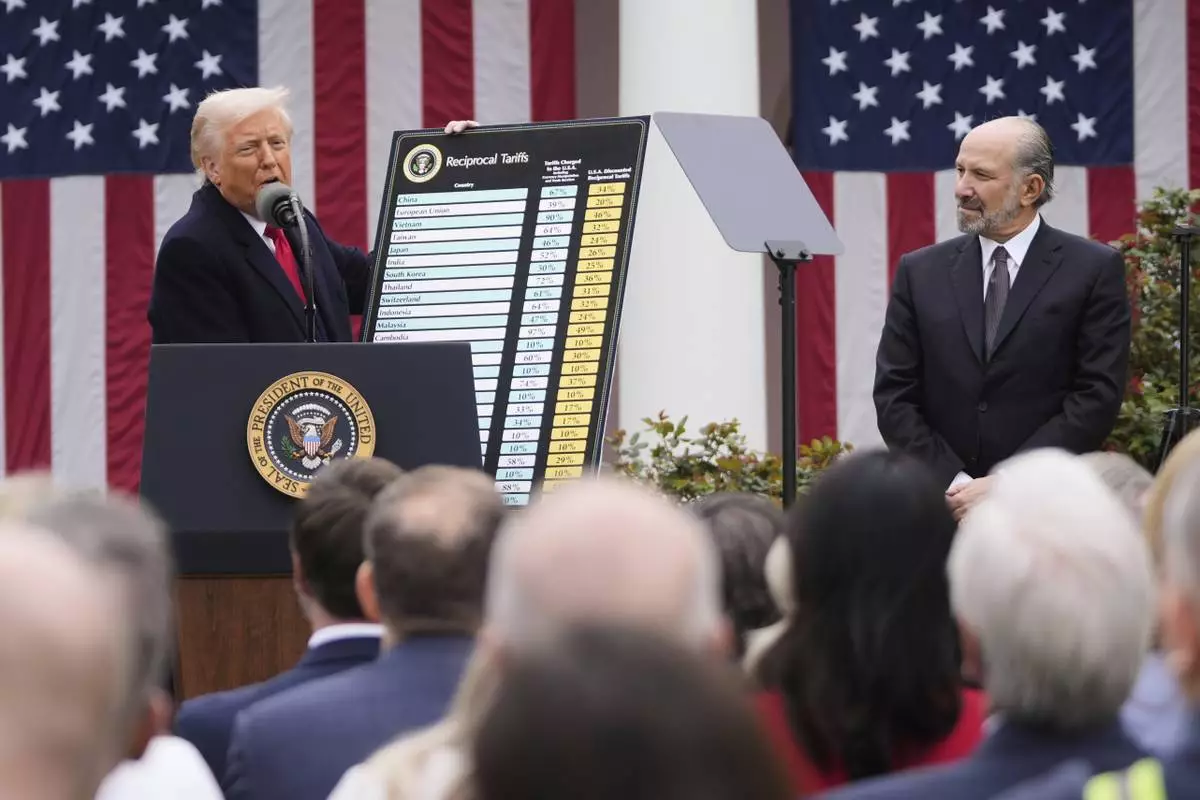
President Donald Trump speaks during an event to announce new tariffs in the Rose Garden at the White House, Wednesday, April 2, 2025, in Washington, as Commerce Secretary Howard Lutnick listens. (AP Photo/Mark Schiefelbein)











